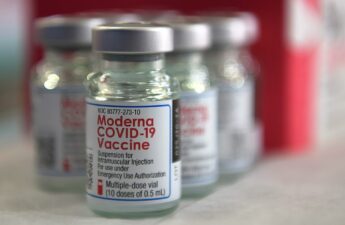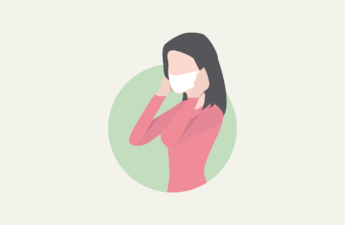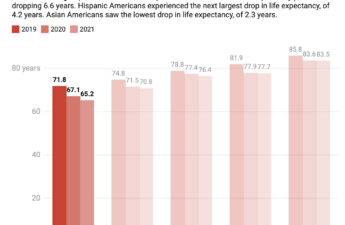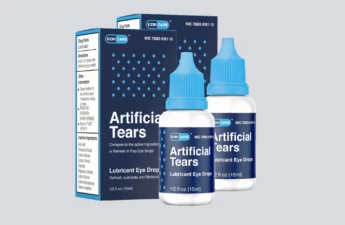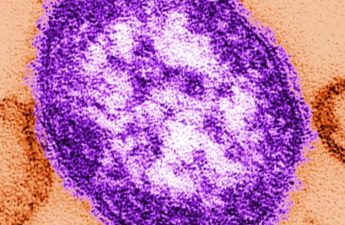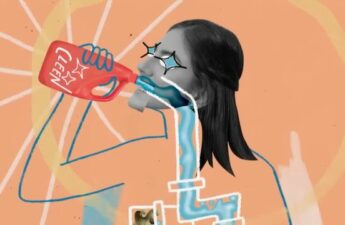With King County’s high level of vaccination booster uptake and lower levels of community spread, hospitalizations due to COVID infection remained at a safe level, making the overall risk forecast low enough to lift the mandate for employees, volunteers, and contractors.
Yes, masks reduce the risk of spreading COVID, despite a review saying they don’t
An updated Cochrane Review published last week is the latest to suggest face masks don’t work in the community.
However there are problems with the review’s methodology and its underpinning assumptions about transmission. Well-designed real-world studies during the pandemic showed any mask reduces the risk of COVID transmission by 50–80%, with the highest protection offered by N95 respirators.
Native Americans have experienced a dramatic decline in life expectancy during the COVID-19 pandemic – but the drop has been in the making for generations
Even before COVID-19 emerged, life expectancy for Indigenous men was already five years lower than for non-Hispanic white men in the United States.
Artificial tears product linked serious eye infections, health officials warn
DOH, CDC encourage residents to stop using EzriCare Artificial Tears
COVID-19 conspiracy theories that spread fastest focused on evil, secrecy—WSU study finds
They found that the most common posts contained statements of belief that a theory was true, but those did not get as much engagement as posts about malicious purposes and secretive actions.
We tested the wastewater from planes to detect COVID among travellers – here’s what we found
It’s important for all countries to monitor what potential new diseases, and new variants of established diseases, are entering their borders.
NEW CASE OF MEASLES IN KING COUNTY
The individual was at Seattle-Tacoma International Airport and Providence Swedish First Hill while infectious. Anyone who was at these locations within the time span that this person passed through may have been exposed to measles.
Washington State Launches Investigation of Private Special Education Schools
A Seattle Times and ProPublica investigation found years of complaints by school districts and parents, including allegations of abuse, overuse of isolation rooms to manage student behavior and unqualified aides instead of certified special education teachers leading classrooms.
Stop hating on pasta – it actually has a healthy ratio of carbs, protein and fat
It can be healthy to eat up to 1.2 to 6.5 times more carbohydrates in a day than protein. The ratio of carbs to protein in pasta is 38g to 7.7g. That’s roughly a 5:1 ratio, well within the acceptable range.
Kicking off the new year by cleansing your body with a detox diet? A dietitian unpacks the science behind these fads
Research shows that there is little evidence to support the use of detox diets and that they are not needed anyway. The body is well-equipped to eliminate unwanted substances on its own, without expensive and potentially harmful supplements sold by the nutrition and wellness industry.
Marriage provides health benefits – and here’s why
One theory that seeks to explain the link between marriage and health is the act of self-selection. Simply put, people who are wealthier and healthier than average are more likely not only to get married but also to find a partner who is wealthier and healthier than average. While this may be part of the story, marriage also provides partners with a sense of belonging, more opportunities for social engagement and reduced feelings of loneliness. This social integration, or the extent to which people participate in social relationships and activities, can greatly influence health – from reducing the risk of hypertension and heart disease to lowering one’s risk of death or suicide.
AMA offers 10 health recommendations for new year
Many people kick off the start of each new year with big-picture health resolutions—ambitious, immediate lifestyle changes that are very difficult to maintain,” said AMA President Jack Resneck, Jr., M.D. “The good news is that small, positive health choices made right now can have long-lasting effects.”
Websites Selling Abortion Pills Are Sharing Sensitive Data With Google
Online pharmacies that sell abortion pills are sharing sensitive data with Google and other third parties, which may allow law enforcement to prosecute those who use the medications to end their pregnancies, a ProPublica analysis has found.
Why it’s hardest to lose those last few pounds
The last 5 kilos really are the hardest to lose. Here’s why, and what you can do about it
Sitting all day is terrible for your health – now, a new study finds a relatively easy way to counteract it
To reduce the harmful health effects of sitting, take a five-minute light walk every half-hour. We found that a five-minute light walk every half-hour was the only strategy that reduced blood sugar levels substantially compared with sitting all day. In particular, five-minute walks every half-hour reduced the blood sugar spike after eating by almost 60%. That strategy reduced blood pressure by four to five points compared with sitting all day. But shorter and less frequent walks improved blood pressure too. Even just a one-minute light walk every hour reduced blood pressure by five points.
